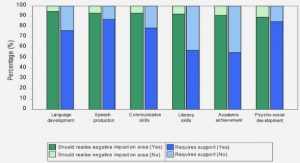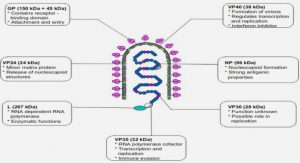Get Complete Project Material File(s) Now! »
psychographic profile:
Interviewee 1: Peter: Age 34: Peter holds a lower ranking administrative job. He has a simple desk like the other staff at his level. He is a frail, slightly built man of nervous disposition. His speech was unclear and he tended to trail off at the end of his sentences. This was particularly so, when he said something he felt might meet with censure if his supervisor found out.
He did not appear to have fully come to terms with his serostatus, despite being the only one of the interviewees on ARV medication. As a result, the underlying tone of his testimony was that of a complaint. For example, the tenor of his conversation is reflected in these typical statements, “So far there are very few good days in the office, because I am really under pressure” or “I wake up very sad. And I find it very difficult to come to office”.
This view however needs to contextualised to his situation in life. He has lost his partner and child to the epidemic and tends to live a reclusive life. He has moved away from his parents and siblings. He lives on his own despite the inconvenience of doing so. While he has a good relationship with his family and goes to them if he needs help, he prefers to live separately. When I asked him if he had friends, he said, “Well, I do not have friends”.
And then as an afterthought added, “The colleagues are, you can say, are my friends… because I sometimes… need to share my pain”.
Interviewee 2: Ruth: Age 39: Ruth is a middle-management person. She has her own room, to provide her with the opportunity to interact with people in private. She is confident, articulate and seemed very comfortable with her sero-status.
She called back the day after her interview, asking for more time. She did her interview in two parts. She talked about being “drawn” into her work and ”feeling the fruits” of her efforts. In a moment of candid insight she even told me, “I have grown”… learning from other people who are living with HIV, “because they come in with completely different angles… to what you experienced”. She was also my focal point for access to the other interviewees.
Interviewee 3: Paul: Age 28: Paul, whose interview wasn’t transcribed properly, is a low ranking staff member. He has no workstation, in the traditional sense of the concept. He works with his colleagues in the same conditions they do. The conditions are physically demanding and entail long hours. No special concessions are made for Paul.
He was mild mannered and talked about a mentor within the organisation, whom he went to for succour. The mentor was an older woman, who was like a caring mother figure. She treated him like her son and he was drawn towards the comfort this provided. He also went to the church on sundays. He seemed concerned about being able to continue the long hours at work,without the aid of ARVs.
Interviewee 4: Mary: Age 28: Mary, when she was working, had a similar workstation to other staff carrying out secretarial duties. Discrimination against her was verbal and subtle and neither space nor location driven.
She was in the toughest situation, having lost her job and given up ARV medication. She was however, calm, composed and articulate. She has made every effort to sustain herself with affordable home remedies and depends on the church for her strength and support. Hope is the emotion underpinning Mary’s life, “I went to a church and got counselled by a preacher. And he told me that I can defeat this. You know, I am the happiest person after talking to the priest”.
Interview 5: Naomi: Age 46: Naomi, shares a room with another consultant (whose sero-status is understood to be negative) and the sharing is mutually comfortable and supportive. Naomi is well paid. She is however not on ARVs and chose to steer clear of it till it becomes imperative for her to take it. She is soft-spoken, but confident and articulate; she was also open and frank in her discussions and did not steer away from sensitive questions. She spoke about her sexual relationships and the manner in which she contracted the virus, with a great deal of composure.
Chapter 1: HIV & AIDS stigma in the workplace
• Understanding HIV and AIDS
• HIV and AIDS: The South Africa perspective
• Aim of the study
Chapter 2: A sociological overview of sero-poitive
stigma and its facets
• Areas of search
• Theoretical concepts & their links
o The unfulfilled search for a meta-narrative:
o Stigma and the marginalised other
o Stepping out of the shadow of stigma
o Self and self-identity in the context of stigma
o HIV, finitude & the body-stigma nexus
o Myth of incompetence and the denial of resources
o Conclusions to the research of scholarship
Chapter 3: Methodological considerations
• Data collection format
• Interview sample
• Note on the selection of interviewees
• Data collection method & fieldwork practice
• Data analysis method
• Selection of concepts for codification
• Sample: A psychographic profile
• Setting: A profile of the workplace
Chapter 4: A discussion of the study findings
• An introduction to the study findings
• Structural perpetuation of stigma
• Quest for legitimacy
• Emotional and moral stigma
• Isolation and the physical manifestations o
revulsion and pity
• The price of integration
• Careers – rituals of achievement
• Dealing with finitude
• Secondary gains – subtle dynamics of assertion
• Self esteem – a manifestation of the virus
• The silver lining of progress
• A researcher’s perspective on the findings
Chapter 5: Conclusions and the way forward
GET THE COMPLETE PROJECT
SERO-POSITIVE STIGMA AND ITS IMPACT IN THE WORKPLACE






